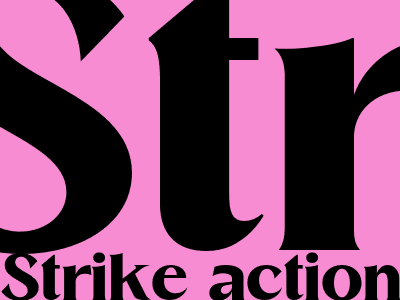
Strike action, Italy
Workers across Italy are striking today in protest against the government's austerity measures.
The strike is being organized by the country's largest trade union, the CGIL, and is expected to cause widespread disruption to public services. Transport, schools, and hospitals are all likely to be affected.
The government has said that it understands the concerns of the unions, but that it has no choice but to implement austerity measures in order to reduce the country's deficit. The unions have rejected this argument, saying that the measures will only hurt ordinary people.
The strike is the latest in a series of protests against the government's economic policies. In recent months, there have been a number of large demonstrations in Rome and other cities.
The government is facing a difficult challenge in trying to balance the need to reduce the deficit with the need to protect public services. The strike today is a sign of the growing discontent among ordinary Italians with the government's policies.
The strike is likely to cause significant disruption to public services.
The strike is expected to affect a wide range of public services, including transport, schools, and hospitals. Commuters are being advised to find alternative means of transport, and parents are being warned that schools may be closed.
The strike is also likely to have a knock-on effect on other sectors of the economy. For example, businesses that rely on public transport to deliver goods and services may be disrupted.
The government has said that it regrets the disruption caused by the strike, but that it is necessary in order to reduce the country's deficit. The unions have rejected this argument, saying that the measures will only hurt ordinary people.
The government is facing a difficult challenge.
The government is facing a difficult challenge in trying to balance the need to reduce the deficit with the need to protect public services. The strike today is a sign of the growing discontent among ordinary Italians with the government's policies.
The government has said that it is committed to reducing the deficit, but that it will do so in a way that is fair and equitable. The unions have rejected this argument, saying that the government's policies will only hurt ordinary people.
The strike is likely to put further pressure on the government to change its policies. The government has said that it is willing to talk to the unions, but that it will not agree to any demands that would put the country's finances at risk.